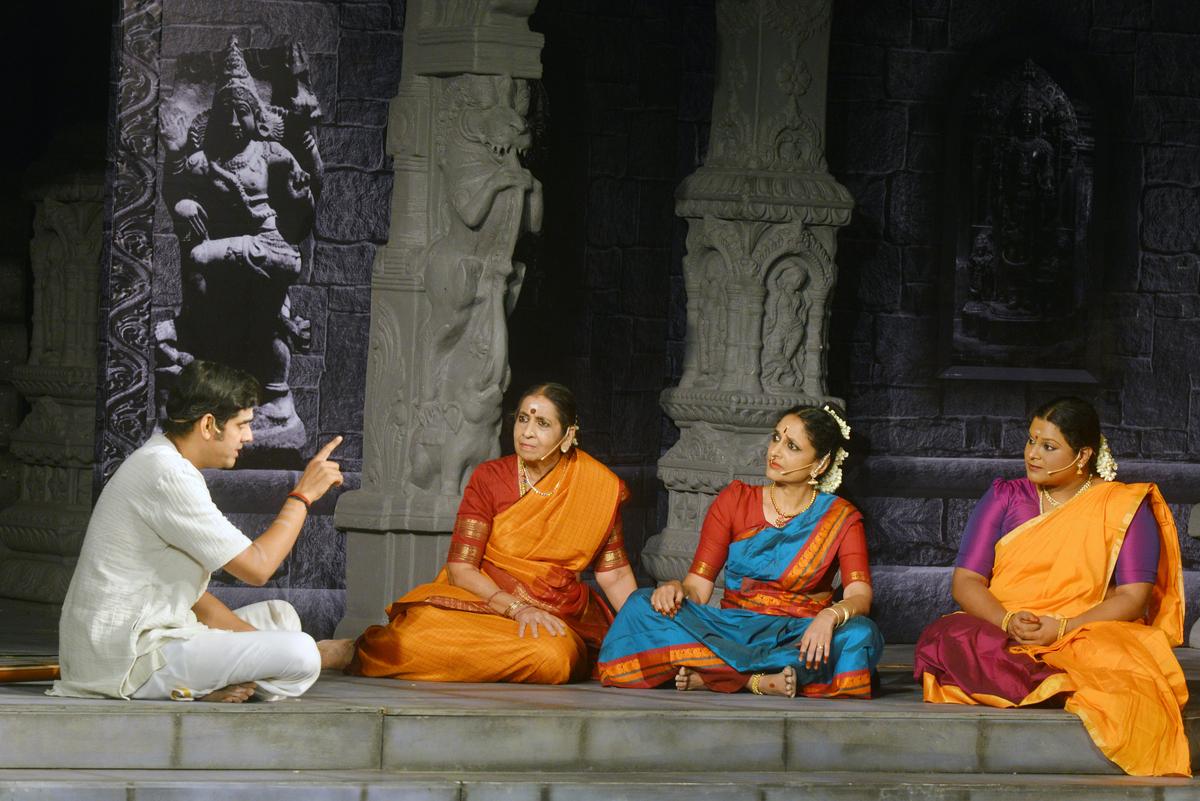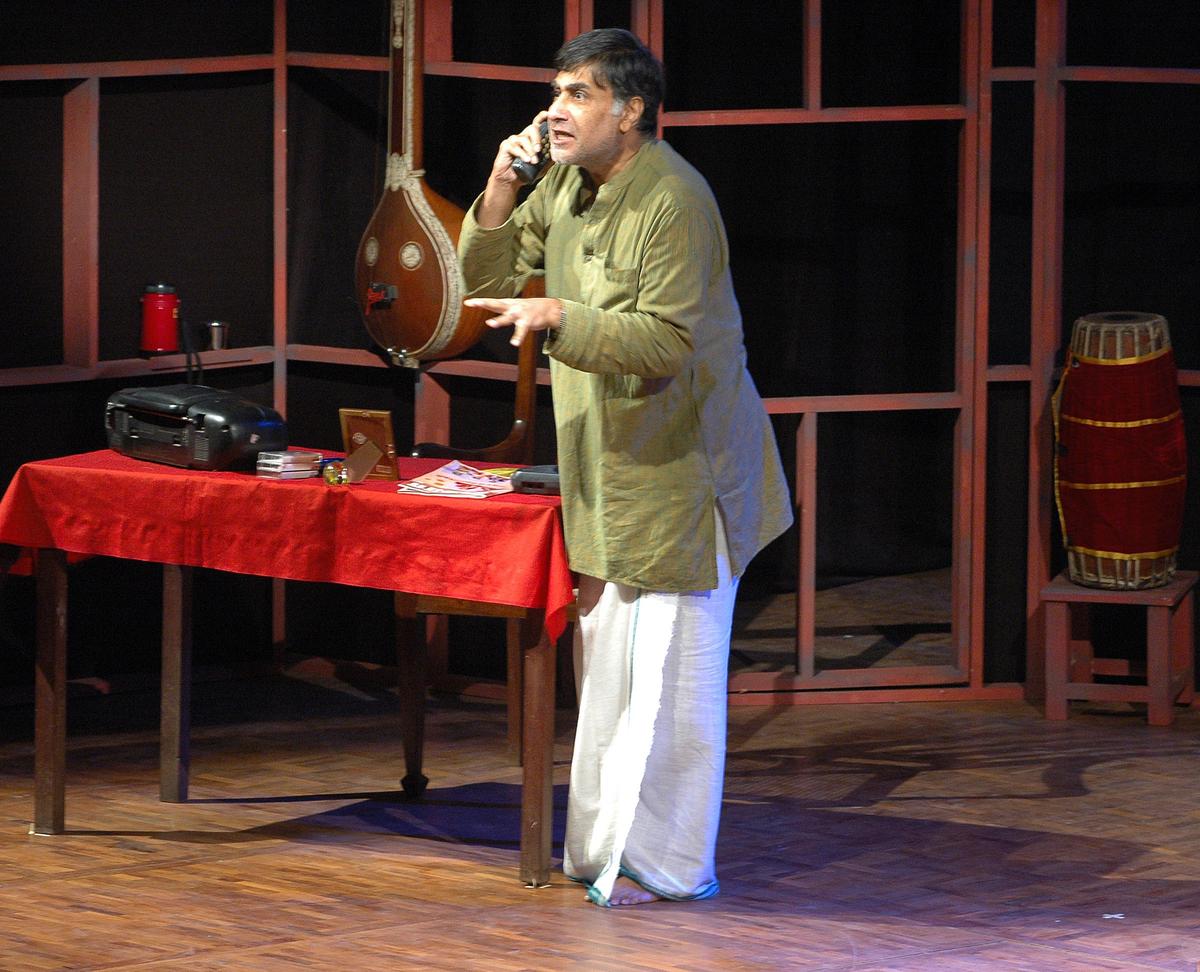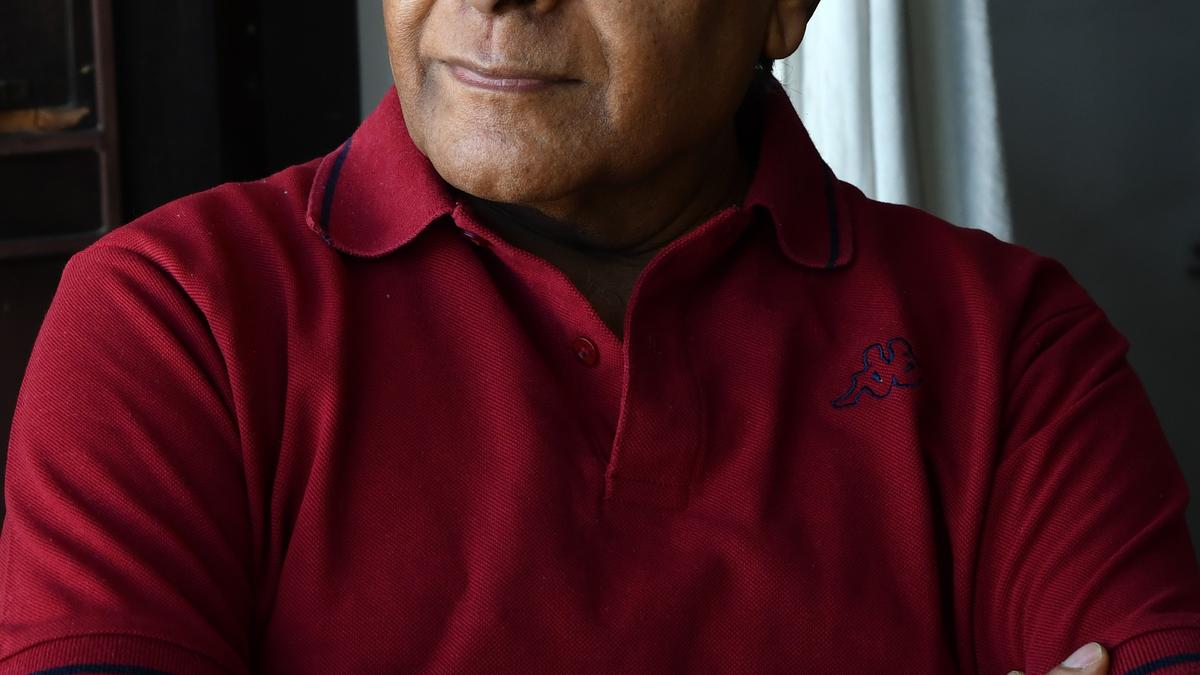P.C. Ramakrishna’s involvement with theatre began 60 years ago, when he acted in college plays. In 1969, he directed Willis Hall’s play The Long, The Short and The Tall,’ for Loyola College. “This was the first Loyola play to be staged in Museum Theatre,” says Ramakrishna. The same year Ammu Mathew, president of Madras Players, offered him a chance to act in Arthur Miller’s The Crucible, which was about the 17th-century Massachusetts witch trials. “Girish Karnad played the hero, and I was Reverend Paris,” says Ramakrishna, who has acted in more than 100 plays of Madras Players. After 2000, he turned to direction.

P.C. Ramakrishna’s Water, an English dramatisation of Komal Swaminathan’s Thanneer Thanneer was staged in 2012.
| Photo Credit:
P.V. RAMKUMAR
In 2012, Water, an English dramatisation of Komal Swaminathan’s Thanneer Thanneer, directed by Ramakrishna, took the stage by storm. “I had watched the Tamil play at Mylapore Fine Arts Club in 1980, and had found it riveting. In 2011, I found an English translation of the play, by Dr. Shankar, a professor in Hawaii. After Water, I felt we should continue to present regional literature in English.”

From the English play Kamalakshi, directed by Ramakrishna
| Photo Credit:
R. Ravindran
Ramakrishna learnt mridangam for 12 years from two disciples of Palghat Mani Iyer, and then learnt from Mani Iyer himself for six years. “My first concert was in 1964, at the Music Academy, for T.K. Govinda Rao. But I never played after that. I took up a corporate career, and theatre occupied all my spare time.” Because of his interest in music, he was glad to dramatise Sita Ravi’s short stories on the Carnatic music Trinity, translated by Prabha Sridevan. “Trinity brought together music rasikas and theatre lovers. It premiered in 2018, and in 2020 it was staged in Toronto, followed by houseful shows in other cities.” Ramakrishna also directed Sujatha Vijayaraghavan’s Kamalakshi, a story about a dancer.
Ramakrishna was part of Lalgudi Jayaraman’s operatic ballet ‘Jaya Jaya Devi’. “As Nandi, I played the mridangam and linked all the stories through my narration, which I scripted. The violin maestro took just a month to write the lyrics and compose the music for them. He would compose and record a piece every night. The next morning, I would collect the cassette and take it to Bharatanatyam artiste Rhadha for the choreography. He didn’t give the pieces in the order in which they appeared. For instance, he gave a Keeravani varnam last, and gave a thillana earlier. He used a discordant raga Sucharitra for discordant moments in the play. We had no time for rehearsals here. We rehearsed in a temple in Cleveland. The show was presented in 23 cities across the U.S. ‘Jaya Jaya Devi’ was a success.”

P.C. Ramakrishna in Mercy, an English adaptation of a Tamil novel written by Sivasankari.
| Photo Credit:
The Hindu Archives
On the request of the Madras High Court, Madras Players dramatised the Lakshmikanthan murder trial of 1945, in which actors Thyagaraja Bhagavatar and N.S. Krishnan were the accused. “I wrote the script after reading all the court transcripts. I ran it by lawyer N.L. Rajah, who played the role of defence counsel K.M. Munshi. Our props had the perfect period look, because our set designer copied the designs of the old court furniture now displayed in the High Court museum.”
How did you find someone speaking English with a British accent to play Judge Mockett? “There was a technologist called Michael Caves, who happened to be in Chennai, and he played Mockett.”
Talking about choosing stories, Ramakrishna says, “They must have the three ‘C’s — content, characters and conflict. Without conflict, there is no drama. I also like strong women characters, which was why I dramatised Choodamani’s stories.”
As for casting, he feels, The actors must be age compatible with the characters. “My vision of the character must fit that person. For instance, four women who live in the same apartment complex that I do, have been cast in some plays, because they are perfect fits for the characters. They’d never been on stage before.”
How is it like working with newcomers? “I like it, because they come without any baggage, and they absorb everything I teach them.”
Does he act now? “Rarely. I feel I must share my knowledge of theatre with youngsters, and direction helps me do that.”
Published – October 17, 2025 03:32 pm IST



